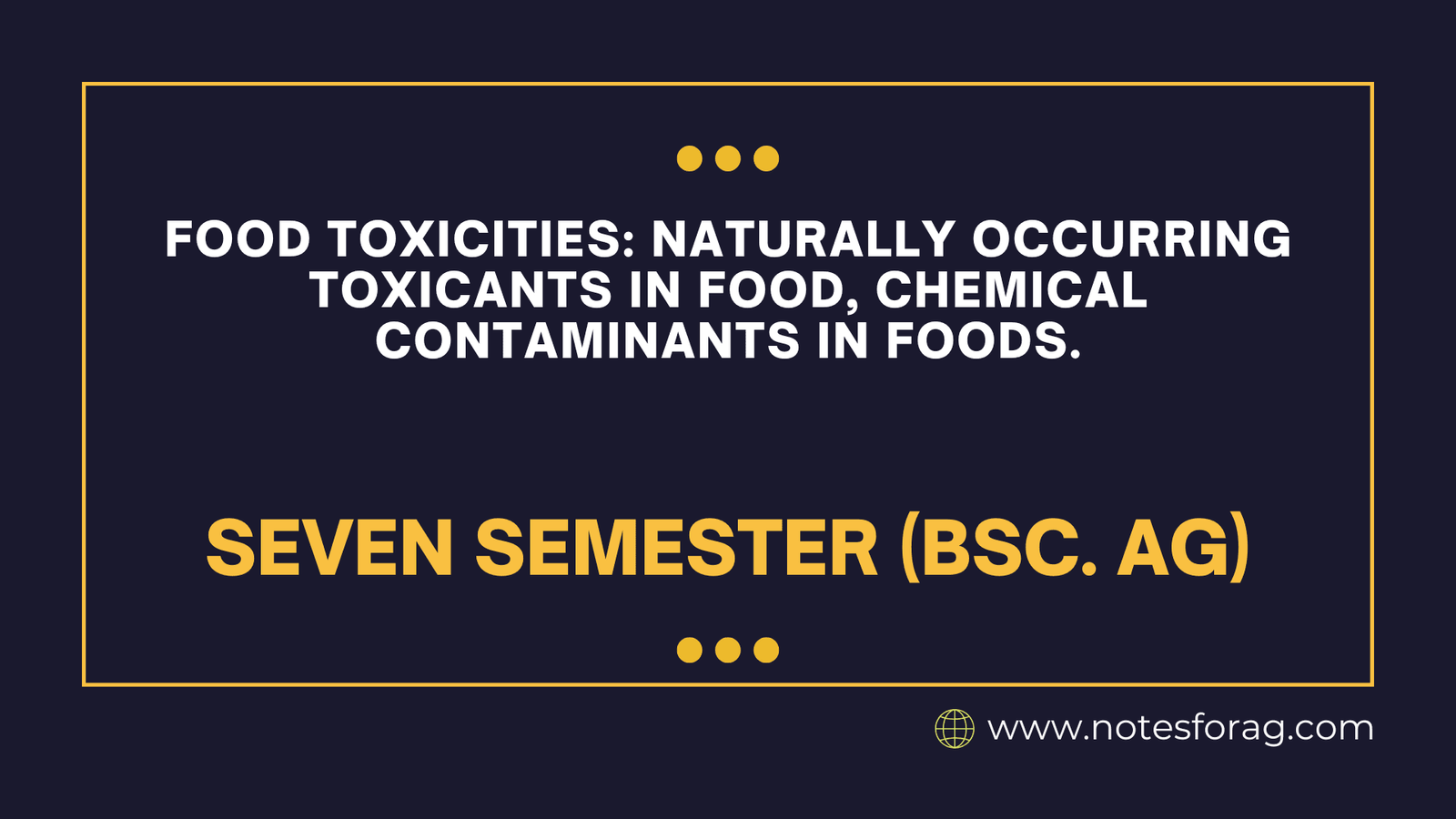What do you mean by Food toxicities ?
Food toxicities refer to harmful substances found in food, which can be either naturally occurring toxins or chemical contaminants.
Food is crucial for our health, but sometimes it can contain harmful substances. These toxicities fall into two main categories: naturally occurring toxins and chemical contaminants. Knowing about these can help us make safer food choices.
Table of Contents
Naturally Occurring Toxins
Some foods have natural toxins that can be dangerous if eaten in large amounts. These toxins are produced by plants or animals to protect themselves from pests and diseases. Here are a few examples:
Solanine in Potatoes
Potatoes that are green or sprouted contain a toxin called solanine, which can cause symptoms like nausea and headaches if consumed in large quantities. To avoid this, store potatoes in a cool, dark place and avoid eating the green parts.
Cyanogenic Glycosides in Bitter Almonds
Bitter almonds have a natural toxin that can release cyanide when digested. While sweet almonds are safe, bitter almonds should be avoided unless properly processed.
Lectins in Beans
Raw or undercooked beans, particularly kidney beans, have lectins that can upset your stomach. Cooking beans thoroughly removes these toxins, making them safe to eat.
Mycotoxins in Grains
Molds on grains can produce mycotoxins, harmful substances that can lead to illness. To reduce this risk, store grains in cool, dry areas and check for mold.
Chemical Contaminants
In addition to natural toxins, food can also be contaminated by chemicals from various sources, including farming, pollution, and processing. Here are some common examples:
Pesticides
Farmers often use pesticides to protect crops from pests, which can remain on the food we consume. Washing fruits and vegetables thoroughly can help, and some people prefer to buy organic produce to lower their exposure.
Heavy Metals
Certain fish, like tuna and swordfish, can accumulate heavy metals like mercury from their environment. High mercury levels can harm the nervous system, particularly in young children and pregnant women. It’s wise to limit consumption of high-mercury fish and choose safer options like salmon or sardines.
Food Additives
Some additives used to improve flavor, texture, or shelf life may pose health risks. For instance, certain artificial colors and preservatives can trigger allergic reactions in sensitive individuals. Reading food labels can help you make better choices.
Industrial Chemicals
Chemicals from food packaging or processing can sometimes leach into food. For example, bisphenol A (BPA) from plastics can migrate into food and has been linked to various health concerns. Opting for glass or stainless steel containers can help reduce exposure.
Prevention and Safety Tips
To reduce the risks associated with food toxicities, consider these tips:
Wash Your Produce
Rinse fruits and vegetables under running water to remove dirt and pesticide residues. A brush can help for firmer items like potatoes.
Cook Thoroughly
Cooking can eliminate many natural toxins in food. Make sure to cook beans, potatoes, and other potentially hazardous foods well.
Stay Informed
Keep updated with food safety guidelines and recommendations from health authorities. Knowing which foods to limit can aid in making healthier choices.
Diversify Your Diet
Eating a variety of foods can help lower the risk of exposure to specific toxins. Different foods offer different nutrients, and variety can protect against potential hazards.
Understanding food toxicities helps highlight the importance of safe food handling and preparation. By being informed and careful, we can enjoy the benefits of food while minimizing health risks. Remember: knowledge is your best tool in the kitchen!
Frequently Asked Questions (FAQ)
What are food toxicities?
Food toxicities refer to harmful substances found in food, which can be either naturally occurring toxins or chemical contaminants.
Why is it important to understand food toxicities?
Understanding food toxicities helps you make informed choices, protect your health, and enjoy food safely while minimizing risks. Knowledge is essential for effective food handling and preparation.
Related Articles

